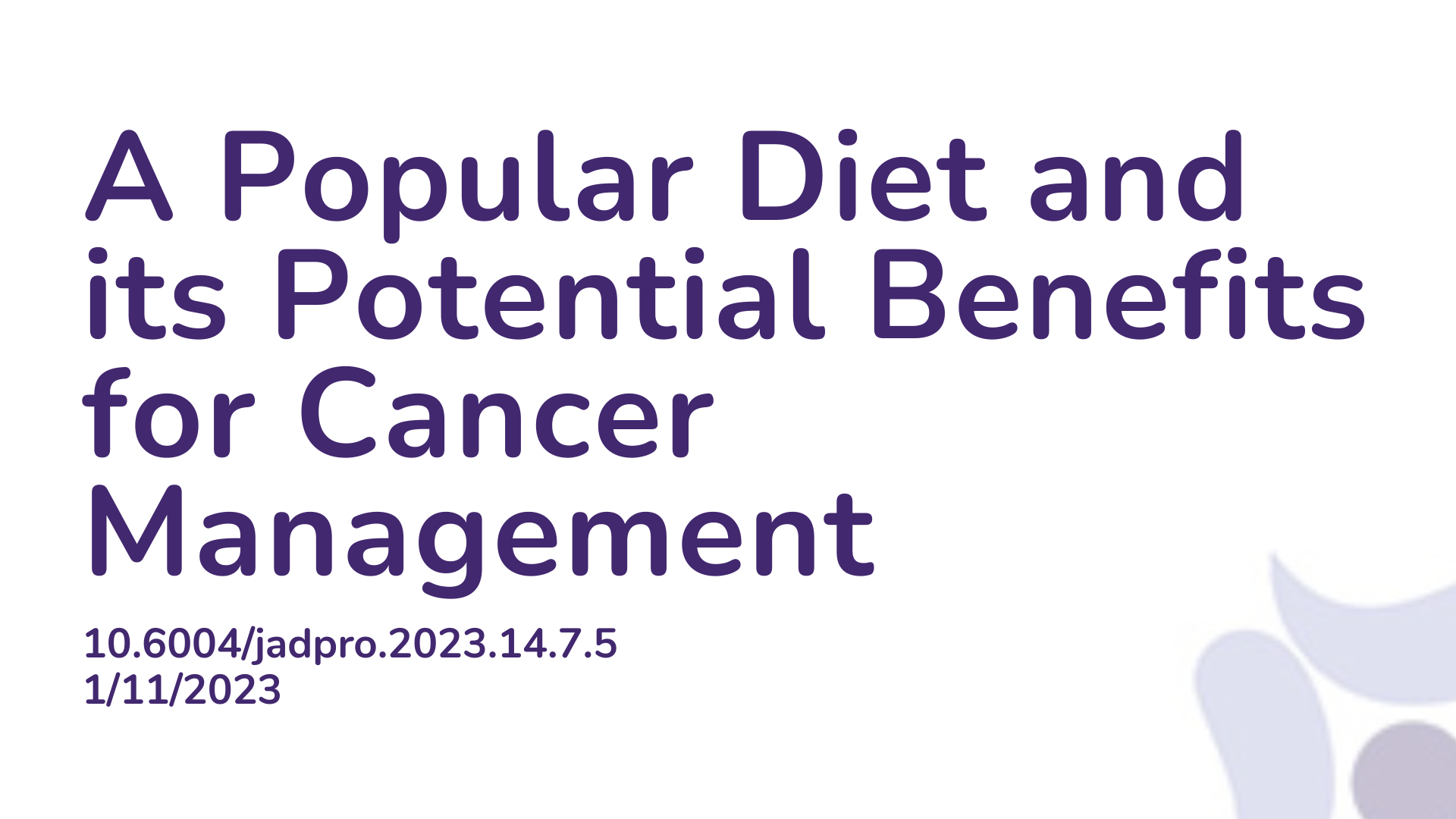Summary:
Intermittent fasting has been proposed as a dietary intervention with potential benefits for cancer treatment, reducing chemotherapy-related side effects and reducing tumor growth. An increasing number of cancer patients view nutrition as integral to their management, however limited studies have explored intermittent fasting as a nutritional intervention alongside chemotherapy. Intermittent fasting involves eating during specified time intervals, with variations in calorie consumption and fasting durations. As patients with cancer show growing interest in nutritional interventions, this literature review aimed to provide evidence-based insights for oncology practitioners on the impact of intermittent fasting in patients undergoing other therapies. Findings from the seven included research articles indicate the potential positive impact of intermittent fasting on cancer treatment. Nonetheless, larger randomized controlled trials are essential to validate these initial observations and delve deeper into the effects of fasting.
Abstract:
Background: Patients with cancer often pursue nutrition as an avenue to positively impact their care management and disease outcomes. Nutritional interventions are increasing in popularity, especially intermittent fasting as an adjunct to chemotherapy. However, limited research is available on the impact of intermittent fasting on patients with cancer. Methods: A comprehensive literature search was conducted using Ovid MEDLINE, Ovid EMBASE, and CINAHL databases. Results: 514 articles were identified from the three databases. Seven studies remained after applying inclusion and exclusion criteria. The seven studies included in this review examined fasting compliance, malnutrition, therapy side effects, endocrine parameters, quality of life measures, and cancer outcomes. Data suggest overall good compliance, no malnutrition, minimal side effects, a trend toward improved endocrine parameters, unchanged quality of life (QOL), and mixed results for cancer outcomes. Conclusion: Intermittent fasting as an adjunct to chemotherapy in normal-weight patients with cancer has potential as a safe, tolerable, and feasible nutritional intervention that could positively impact treatment outcomes and QOL. Large-scale randomized controlled trials are needed to validate these findings and determine what future role intermittent fasting may play in cancer management.
Article Publication Date: 1/11/2023
DOI: 10.6004/jadpro.2023.14.7.5



